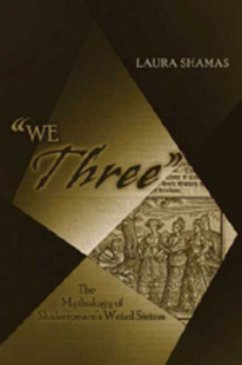
With What Persuasion
An Essay on Shakespeare and the Ethics of Rhetoric
Versandkostenfrei!
Versandfertig in 6-10 Tagen
108,45 €
inkl. MwSt.

PAYBACK Punkte
0 °P sammeln!
Although there are a number of book-length studies of rhetoric in Shakespeare's plays, With What Persuasion discerns a distinctly Shakespearean ethics of the art of rhetoric in them. In this interdisciplinary book, Scott F. Crider draws upon the Aristotelian traditions of poetics, rhetoric, and ethics to show how Shakespeare addresses fundamental ethical questions that arise during the public and private rhetorical situations Shakespeare represents in his plays. Informed by the Greek, Roman, and English poetic and rhetorical traditions, With What Persuasion offers close readings of a selection...
Although there are a number of book-length studies of rhetoric in Shakespeare's plays, With What Persuasion discerns a distinctly Shakespearean ethics of the art of rhetoric in them. In this interdisciplinary book, Scott F. Crider draws upon the Aristotelian traditions of poetics, rhetoric, and ethics to show how Shakespeare addresses fundamental ethical questions that arise during the public and private rhetorical situations Shakespeare represents in his plays. Informed by the Greek, Roman, and English poetic and rhetorical traditions, With What Persuasion offers close readings of a selection of plays - Hamlet, Julius Caesar, Henry the 5th, All's Well That Ends Well, Othello, Measure for Measure, and The Winter's Tale - to answer universal questions about human speech and association, answers that refute a number of contemporary literary and rhetorical theory's assumptions about language and power. Crider argues that this Shakespearean ethics could assist us in our own historical moment as we in the liberal, multicultural West try to refound, without coercion, ethical principles to bind us to one another.












